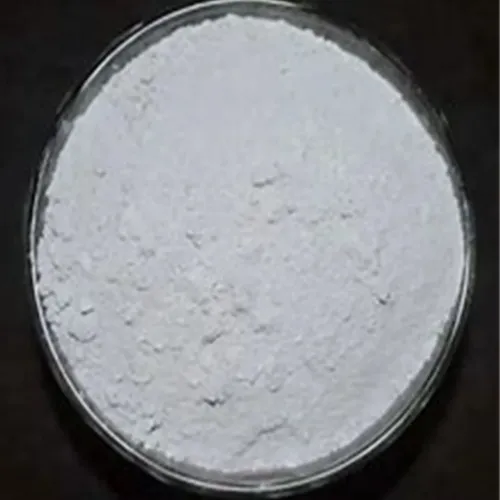Warning: Undefined array key "title" in /home/www/wwwroot/HTML/www.exportstart.com/wp-content/themes/1198/header.php on line 6
Warning: Undefined array key "file" in /home/www/wwwroot/HTML/www.exportstart.com/wp-content/themes/1198/header.php on line 7
Warning: Undefined array key "title" in /home/www/wwwroot/HTML/www.exportstart.com/wp-content/themes/1198/header.php on line 7
Warning: Undefined array key "title" in /home/www/wwwroot/HTML/www.exportstart.com/wp-content/themes/1198/header.php on line 7
- Afrikaans
- Albanian
- Amharic
- Arabic
- Armenian
- Azerbaijani
- Basque
- Belarusian
- Bengali
- Bosnian
- Bulgarian
- Catalan
- Cebuano
- China
- China (Taiwan)
- Corsican
- Croatian
- Czech
- Danish
- Dutch
- English
- Esperanto
- Estonian
- Finnish
- French
- Frisian
- Galician
- Georgian
- German
- Greek
- Gujarati
- Haitian Creole
- hausa
- hawaiian
- Hebrew
- Hindi
- Miao
- Hungarian
- Icelandic
- igbo
- Indonesian
- irish
- Italian
- Japanese
- Javanese
- Kannada
- kazakh
- Khmer
- Rwandese
- Korean
- Kurdish
- Kyrgyz
- Lao
- Latin
- Latvian
- Lithuanian
- Luxembourgish
- Macedonian
- Malgashi
- Malay
- Malayalam
- Maltese
- Maori
- Marathi
- Mongolian
- Myanmar
- Nepali
- Norwegian
- Norwegian
- Occitan
- Pashto
- Persian
- Polish
- Portuguese
- Punjabi
- Romanian
- Russian
- Samoan
- Scottish Gaelic
- Serbian
- Sesotho
- Shona
- Sindhi
- Sinhala
- Slovak
- Slovenian
- Somali
- Spanish
- Sundanese
- Swahili
- Swedish
- Tagalog
- Tajik
- Tamil
- Tatar
- Telugu
- Thai
- Turkish
- Turkmen
- Ukrainian
- Urdu
- Uighur
- Uzbek
- Vietnamese
- Welsh
- Bantu
- Yiddish
- Yoruba
- Zulu
Th8 . 09, 2024 06:30 Back to list
Exploring the Benefits and Applications of Xanthan Gum Combined with Various Oils in Food Products
The Role of Xanthan Gum in Oil-Based Formulations
Xanthan gum, a polysaccharide derived from the fermentation of the bacterium *Xanthomonas campestris*, has become an increasingly important ingredient in various industries, notably in food, cosmetics, and oil-based formulations. Its unique properties, including thickening, stabilizing, and emulsifying abilities, make it a valuable additive, particularly in products that require a specific texture or consistency.
In the context of oil-based products, xanthan gum serves several critical functions. One of its primary roles is to act as a thickener. The viscosity-enhancing properties of xanthan gum can be particularly beneficial in products such as salad dressings, sauces, and marinades, which typically contain oil. By increasing the thickness, xanthan gum helps achieve the desired mouthfeel and prevents the separation of oil from other components, resulting in a more stable and appealing product.
The Role of Xanthan Gum in Oil-Based Formulations
Another important aspect of xanthan gum is its pseudoplastic behavior. This means that its viscosity decreases under shear stress, a characteristic that is particularly advantageous in scenarios where products need to be poured or sprayed. For instance, in oil-based paint formulations, Xanthan gum allows for easy application while ensuring that the paint maintains its overall consistency when at rest. Upon application, the shear stress caused by brushing or rolling reduces the viscosity, allowing for smooth application, after which the viscosity increases again, preventing dripping and sagging.
xanthan gum and oil

In addition, xanthan gum provides a desirable texture to oil-based systems. In food applications, it contributes to a creamier mouthfeel, enhancing the sensory experience for consumers. In cosmetics, the inclusion of xanthan gum in oil serums and creams can provide a pleasing softness to the skin, all while ensuring that the product does not feel greasy or overly heavy.
Xanthan gum is also appreciated for its ability to enhance the shelf life of products. By maintaining the emulsion stability and preventing ingredients from separating, xanthan gum contributes to a longer-lasting product. This is particularly crucial for manufacturers and consumers alike, as it reduces waste and increases shelf appeal.
Furthermore, xanthan gum is considered safe for consumption, with numerous studies affirming its safety profile. This quality, combined with its versatility, has led to a rising demand in both food and cosmetic industries, where manufacturers are continually seeking natural and effective stabilizers.
In conclusion, xanthan gum plays a vital role in the formulation of oil-based products, delivering thickening, emulsifying, and stabilizing benefits. As consumer preferences shift towards clean-label and natural ingredients, the importance of polymeric additives like xanthan gum is expected to grow. Its unique characteristics not only improve product quality but also enhance consumer satisfaction, securing its place in the future of food, cosmetics, and beyond.
Latest news
-
Certifications for Vegetarian and Xanthan Gum Vegetarian
NewsJun.17,2025
-
Sustainability Trends Reshaping the SLES N70 Market
NewsJun.17,2025
-
Propylene Glycol Use in Vaccines: Balancing Function and Perception
NewsJun.17,2025
-
Petroleum Jelly in Skincare: Balancing Benefits and Backlash
NewsJun.17,2025
-
Energy Price Volatility and Ripple Effect on Caprolactam Markets
NewsJun.17,2025
-
Spectroscopic Techniques for Adipic Acid Molecular Weight
NewsJun.17,2025

